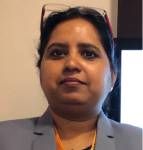Reproductive Biology of Freshwater Murrel, Channa punctatus (Bloch, 1793) from River Varuna (A Tributary of Ganga River) in India
Jump To References Section
DOI:
https://doi.org/10.18311/jeoh/2011/2251Keywords:
Channa punctatus, River Varuna, Maturity, Spawning, Fecundity.Abstract
Aspects of reproductive biology such as sex ratio, size at first maturity, spawning, gonadosomatic index, ova diameter and fecundity of Channa punctatus from river Varuna were investigated for a period from March 2007 to February 2008. On the basis of monthly variation, the overall sex ratio (M: F) was 1: 1.33. Chisquare test showed no significant departure in sex ratio. Five stages of maturity were recognized in both the sexes. For the population, 50% of individuals belonging to the size of 125 mm were mature for the first time. The spawning season extends from June to October. Gonadosomatic index reaches maximum in August. Only one batch of ova is produced to be released in one spawning act. Absolute fecundity varied from 3,678- 27,853 with an average value of 12,546 in the individuals ranging between 116-231mm in length and 18-139.8 g in weight. Length wise, the average relative fecundity recorded was 708 eggs/mm body length and weight wise it was 175 eggs/g body weight of the fish. Relative fecundity per mm of ovary length was 2,729 and per gm of ovary weight was 5,449. Mean absolute fecundity increased with total length, body weight, ovary length, ovary weight and exhibit linear regression equation derived from the logarithmic transformed data. The results of the present study will be useful for selective breeding programme, conservation and sustainable fishery management of C. punctatus in its natural habitat.Downloads
Download data is not yet available.
Metrics
Metrics Loading ...
Downloads
Published
2011-06-01
How to Cite
Prasad, L., Dwivedi, A. K., Dubey, V. K., & Serajuddin, M. (2011). Reproductive Biology of Freshwater Murrel, <I>Channa punctatus</I> (Bloch, 1793) from River Varuna (A Tributary of Ganga River) in India. Journal of Ecophysiology and Occupational Health, 11(1-2), 69–80. https://doi.org/10.18311/jeoh/2011/2251
Issue
Section
Articles
 Lalta Prasad
Lalta Prasad







